The Gospel of Mark has several stories about unclean spirits and demon possession. These stories may seem quaint or primitive at first. For the modern and post-modern mindset, demon possession is the stuff of horror movies and Stephen King novels. But before we dismiss these stories of Jesus casting out demons, let’s take a second look. Because they have something to teach us about how we might re-frame the opioid crisis, as well as addictions more broadly.
Text: Mark 1:21-28
(This piece is based on my sermon delivered January 25, 2018, at Lexington Theological Seminary in Lexington, Kentucky. [Watch the video of the sermon here.])
You know something’s up when the demons recognize who you are. You know something’s up when the unclean spirits take notice that you’re onto them. It’s one thing when your allies recognize you for who you are. It’s quite another thing when your enemies recognize you as well.
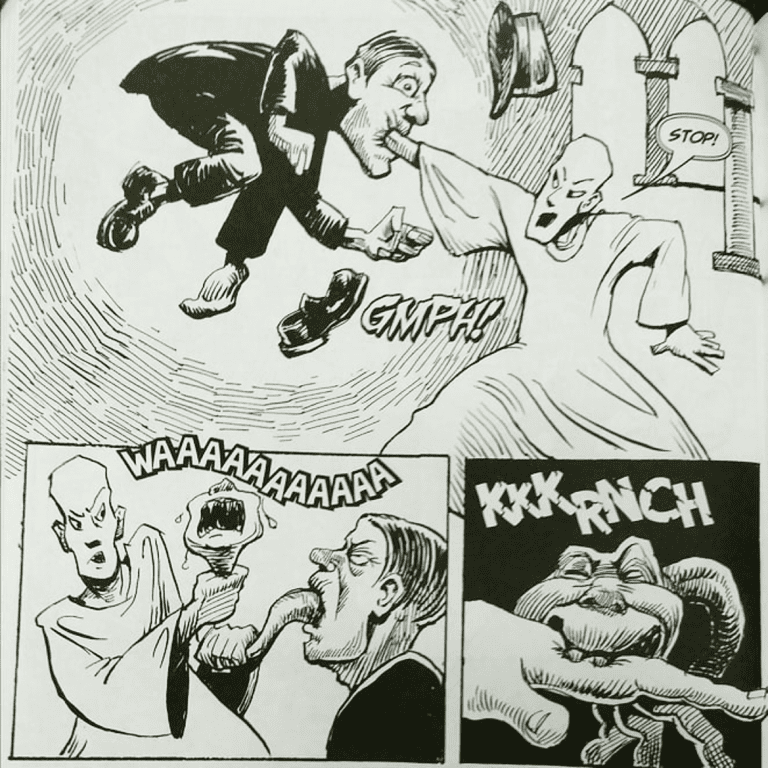
Jesus first confronts a demon in the opening chapter of Mark and continues to call them out throughout the rest of the Gospel. Mark is very big on Jesus exorcising demons (which is why it’s right there in the first chapter). There are at least eight instances in this Gospel where Jesus either directly or indirectly addresses and confronts demons and unclean spirits.
Why are these stories important to Mark?
Because he knows there is a cosmic battle of good and evil that is manifesting itself within the hearts and minds of people and communities. The unclean spirits are opposed to everything that Jesus is. Sent from God, Jesus is about light and life, justice and grace. All of that is what the powers of domination work so hard to destroy. So when Jesus comes walking into the synagogue to teach, to open people’s eyes, to proclaim the good news – you better believe the demons are on high alert.
Notice what Jesus is doing – preaching, teaching, healing, blessing.
This is exactly what the church is set up to do as well. This is good news to a lot of folks. But for not for everyone. For the powerful, the wealthy, and the privileged who profit from systems of oppression and addiction, Jesus’ ministry is not good news. And for those who are duped into supporting these systems – even as they are eaten alive – this preaching, teaching, healing, and blessing is not good news at first.
Many clergy know just how hard it can be to try to bring good news to their congregations. Many pastors have shared with me about times they preached a sermon they knew was good news, only to have someone come up in their face in anger, indignation, and defensiveness. Maybe even breathing threats. (“We’ll leave the church and take our money with us.” “You better watch yourself, missy – preachers aren’t supposed to talk politics.”) [See: “How To Preach When You Are Afraid.”) Like I said, you know something’s up when the unclean spirits take notice.
Now take note, I did not say unclean people.
Jesus never demonizes people. Let me repeat that. Jesus never demonizes people. This means that we are not to demonize them either. Especially when it comes to people who have been overcome by demons of addiction, it’s important to remember how Jesus handled the demons he encountered.
Jesus calls out that which is demonic within the person’s thoughts, words and actions.
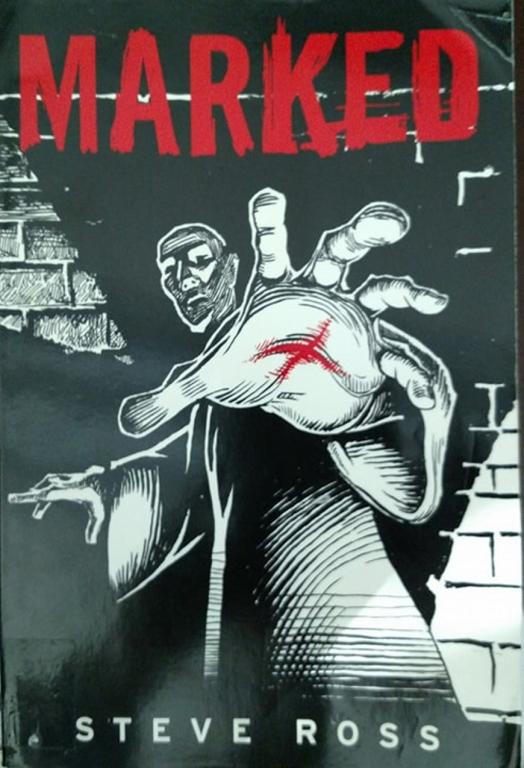
Steve Ross, in his graphic novel called Marked (Seabury Books, 2005), gives us striking illustrations of what it looks like when demons take over. He depicts the Gospel of Mark taking place in a modern context of a society under siege by governmental, military, economic, and religious powers all reinforcing each other in the subjugation of the people.
Every time an immigrant is deported, a demon takes over. Every time a person of color is shot, another unclean spirit takes hold. Each time some act of aggression or violence is perpetrated, one more demon slithers in. Sometimes a person witnesses so much pain, so much trauma, and absorbs so much evil into their psyche, it appears that they are the demon themselves.
Maybe you have encountered people who have been overcome with unclean spirits?
If you’ve ever dealt with someone whose life has been taken over by an addiction, you know what I mean. That unclean spirit takes over the person, turns them into someone – something – they are not.
I will never forget the first time I confronted a loved one about their addiction.
I remember looking into this person’s eyes and not recognizing who I saw. This person was not same as before the demon of addiction had taken over. I was seeing a completely different person. Someone who could not be reasoned with. They could not be logical. The person got this stony, knife-edge look in the eye that, frankly, scared me.
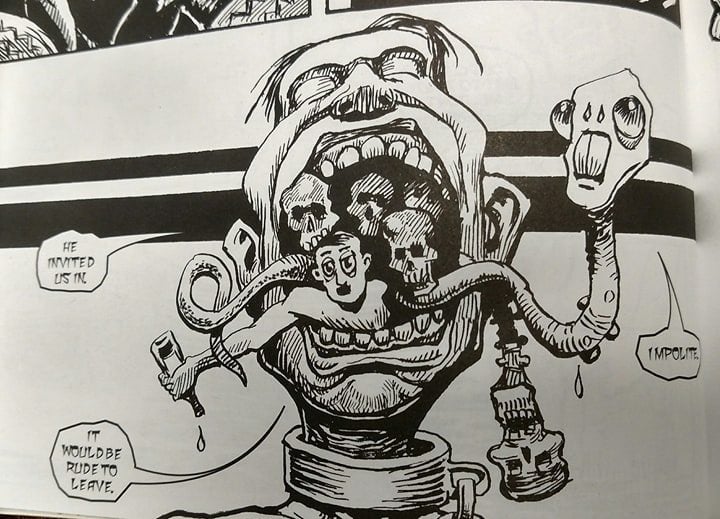
This loved one was fixated on one thing only – keeping the demon of addiction alive. Because the demon has convinced them that the only way THEY would stay alive is by keeping the demon alive. Of course, all the while, the demon is killing the person from the inside out.
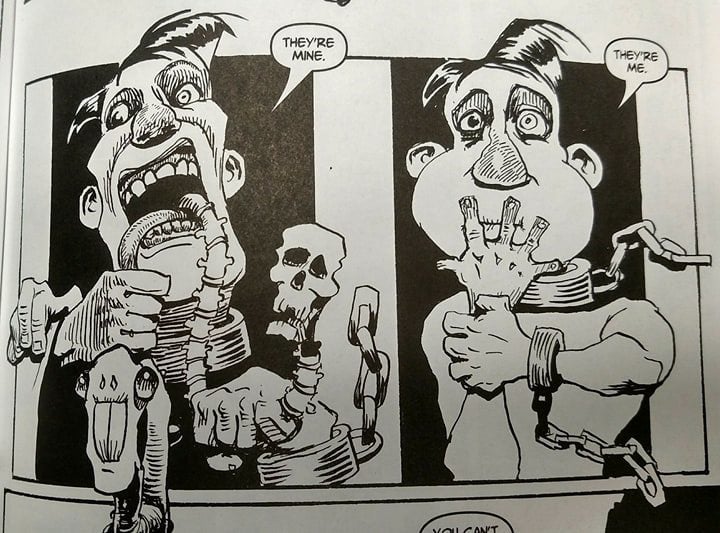
It’s not just individual addictions where the demon takes hold. Whole groups of people can be affected.
The demon of addiction within one person can get its tentacles around a whole family, a workplace, a church. If you happen to be caught in the middle of those tentacles, it can make you feel like you are going insane.
But it’s important to remember that a person’s addiction is often a symptom of a deeper systemic problem.
For example, pharmaceutical companies have profited from producing and promoting opioid painkillers, but have done little to address addictions. Also, some doctors have contributed to the problem by over-prescribing addictive painkillers. In addition, decreased funding for treatment centers and mental health treatment and facilities has had a significant role in exacerbating the crisis. In other words, addiction is a complex problem where the individual is demonized instead of the systems that created the conditions where the unclean spirits could take hold in the first place.
Even on a larger scale, societies, systems, and institutions can succumb to the demonic.
I don’t have to remind you, there are myriad unclean spirits finding willing hosts throughout this country. Notice how the demon in Mark refers to itself in the plural: “We know who you are.” That means there is more than one. In the Fifth Chapter of Mark, Jesus confronts the man in Gerasene and the demon refers to itself as “Legion, for we are many” (Mark 5:9).
Just consider the legion of systemic addictions that have taken possession.
We can become addicted to racial privilege.
We can become addicted to nationalism and xenophobia.
We can become addicted to violence and guns.
The #MeToo movement has revealed that men can become addicted to sexual predation.
A whole economy can become addicted to fossil fuels.
Whatever the addiction is, you can be sure there is some kind of unclean spirit in the mix. When you try to confront those who are hosts of those demons, you’ll get the same rage as the person with a substance addiction.
You see, the demon is a parasite. It needs a host. And it will do anything to maintain and perpetuate its existence.
I tell you, sometimes I feel like I’m living in Mussorgsky’s “Night on Bald Mountain” the way the demons have been whooping it up lately. White supremacist rallies. The floor of Congress. Flying all through the White House. Toasting at corporate board meetings. Guns blazing at schools and concerts and movie theatres. Screeching trolls in the Internet. It’s enough to make you want to roll up in a cocoon with your Netflix and binge-watch yourself into oblivion.
But we are the church. We are Christians who have made a commitment to follow Jesus. So Netflix will have to wait.
Because, Christians, we have work to do. We have demons to deal with. Yes, it is a difficult task. But Jesus shows us what we need to do.
First, we need to stay sane in an insane place.
The world does feel like it has gone out of control. Doubtless, this kind of turmoil surrounded First Century Palestine as well. But notice, when he faces the demons – Jesus does not get flustered. He gets focused.
We, too, need to help each other focus. We need to stay focused on Jesus when we are dealing with addictions. We need to stay focused when we’re assaulted by the cacophony of negativity and divisive politics attack from all sides.
Understand that attacking on all sides is a tactic of the unclean spirits.
The demons will either use bluster to distract you, or, like the Dementors in the Harry Potter series, try to suck every ounce of hope from your soul. But remember – what do they use to repel the Dementors? Expecto patronum! It’s a spell the concentrates all of a person’s hope and love into an image that drives the demons away.

Christians have so many options for our expecto patronum. Flowing water. The Tree of Life. The dove of peace. The tongue of fire at Pentecost. The cross itself. We need to draw on our holy symbols and rituals to help us repel the demons when they attack.
That’s one reason that worship can help us stay grounded in the midst of the tumult. Gathering together around the central things of Font (baptism), word (scripture), and meal (communion) remind us: Don’t get flustered – get focused.
Second, do not cower – confront in love.
Jesus does not cower in fear but confronts the demonic powers with a command to be silent and come out. He does this because of his compassion for the one who is held captive by the demon. When we are faced with the demonic, we, too, need to confront in love instead of cowering in fear. How do we do that in our preaching, our advocacy and activism? What does confronting-in-love look like?
Here’s what Jesus does. He commands the unclean spirit to come out.
He says, essentially: “Let’s see what you’re made of. Show us what’s really going on. Don’t try to hide. Let’s put it all on the table and see just how weak and miserable this demon is without a host to give it life.”
If you want to see what confronting the demonic spirits look like, there are plenty of examples.
Want to see someone silencing the demons of addiction?
Sit in on an Alcoholics Anonymous meeting, or an Al-Anon or Alateen meeting. There, the excuses are silenced, and the real fears fueling the demon are put in the center of the circle. No person is destroyed. Because remember, we are not demonizing people. We are confronting and expelling the unclean spirits.
One of the ways the church can help bring the demons of the opioid crisis to light at the individual and systemic level is by engaging in deliberative dialogue about this issue. Jesus models for us what it looks like to bring this issue out into the open, and we need to follow his lead. [For a resource to help your congregation engage in dialogue about the opioid crisis, check out this issue guide from the Kettering Foundation’s National Issues Forum: “What Should We Do About the Opioid Epidemic?”]
Want to see silencing of the demons of gun violence and the NRA’s industry-of-death?

Follow the #ParklandStrong teens who are rising up to demand safety for their lives and schools. When trolls, Republican politicians, and NRA minions try to attack them, they don’t get flustered. They get focused. They do not cower. They confront. And they are changing our country’s conversation about guns and gun violence.
Want to see the silencing of the demons of sexual predation?
Look at the women who are part of the #MeToo movement. The thousands-year-old demons of rape and misogyny and hierarchical power are finally being brought out into the open and expelled. The church, too, needs to confront these demons within our congregations.
Want to see people silencing the demons of economic oppression?
Look at The Rev. Dr. William Barber’s revival of the Poor People’s Campaign. When the power structures try to use race to pit the poor against each other, Dr. Barber says “Silence! Come out!” Let’s confront the real issue – the wealthy sucking dry the common good, leaving the disenfranchised to fight over the bones. Through the work of this movement, those demons are being confronted and expelled.
Want to see people silencing the demons of our fossil fuel addiction?
See the hundreds of thousands of people who have marched – and will continue to march – to resist the fossil fuel industry, strengthen relationships across different groups to address the climate crisis, and work together with citizens and leaders across the planet. You can be part of this movement to confront the unclean spirits that are literally choking the atmosphere of our planet. And the church must be involved in that work to bring about a more just, clean-energy future.
Want to see people silencing the demons of xenophobia?
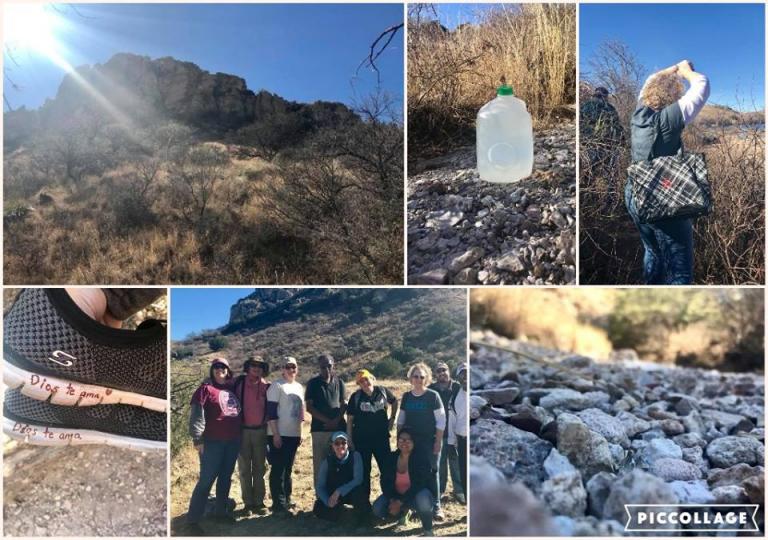
Talk to the students where I teach, Lexington Theological Seminary, who went with Dr. Emily Askew on a service-learning trip to the border of Mexico. Ask them about the brown bodies they saw in chains. Ask them about the court system meting out ‘justice.’ Ask them about the people they talked to in Mexico who are demonized as rapists, murderers, and drug runners. Ask how their witness will impact their preaching, their teaching, and their advocacy. The demons are being confronted and expelled by our very own students!
Here’s the third and final thing.
Here’s I want you to know about Jesus confronting the demons through our words and actions and ministry.
It’s working! The demons are on the run!
How do I know? Because there’s a lot of convulsing and crying out with a loud voice. The demons recognize the Holy Ones of God, and they are screaming because they know their time is up! All of this “fire and fury” is actually the convulsing and screeching of the demonic being confronted and howling because it knows it has met its match in Jesus.
Personally, that’s how I keep the trolls and the white supremacists and the misogynists in perspective. When I see them on the attack, that tells me something. They know we have found them out, and they are being expelled.

So remember:
In order to stay sane in an insane place:
Don’t get flustered. Get focused.
When faced with the demons:
Do not cower. Confront in love.
Keep repeating the words of Jesus, praying the demonic out into the open and expelling the unclean spirits.
In the name of Jesus – Demon of addiction: “Be silent, and come out of us!”
In the name of Jesus – Demon of racism: “Be silent, and come out of us!”
In the name of Jesus – Demon of patriarchy: “Be silent, and come out of us!”
In the name of Jesus – Demon of exploitation: “Be silent, and come out of us!”
In the name of Jesus – Demon of greed: “Be silent, and come out of us!”
In the name of Jesus – Demon of fear: “Be silent and come out of us!
And they were all amazed, and they kept asking one another, “What is this? A new teaching–with authority! THE CHURCH – IN JESUS’ NAME – commands even the unclean spirits, and they obey.” (Mark 1:27)
Amen!

Leah D. Schade is the Assistant Professor of Preaching and Worship at Lexington Theological Seminary (Kentucky) and author of the book Creation-Crisis Preaching: Ecology, Theology, and the Pulpit (Chalice Press, 2015). She is an ordained minister in the Lutheran Church (ELCA).
Twitter: @LeahSchade
Facebook: https://www.facebook.com/LeahDSchade/.

















